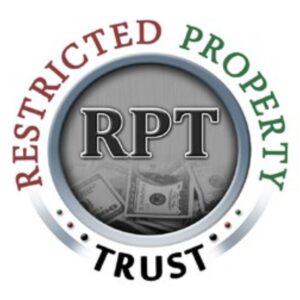Securing Tomorrow: How Restricted Property Trusts Future-Proof Your Wealth
Securing Tomorrow: How Restricted Property Trusts Future-Proof Your Wealth
Blog Article

In the current uncertain economic landscape, protecting and safeguarding wealth for the future becomes ever more crucial. Restricted Property Trust offer a forward-thinking approach to asset management and protection and ensures that your assets are secure against evolving challenges. This article delves into the role that RPTs play in part in safeguarding the financial future of your family.
What Are Restricted Property Trusts?
Restricted Property Trusts (RPT) are financial structures created to protect and manage assets subject to specific restrictions. Contrary to traditional trusts RPTs have restrictions on how assets are utilized, accessed or transferred. This provides a distinct level of protection and control, making RPTs an effective tool for long-term wealth management.
Key Benefits of RPTs for Future-Proofing Your Wealth
1. Increased Asset Protection The primary advantages of RPTs is their capability to protect assets from potential risks such as the possibility of legal claims, creditors and financial uncertainties. By placing assets in the RPT you build an insurance layer that can safeguard your wealth from unanticipated circumstances, and ensures that it will be protected for future generations.
2. Effectiveness in Taxation: The RPTs provide significant tax advantages, making them a powerful way to secure your financial future. Contributions to the trust may be tax-deductible, and the trust's income can be tax-favored. This can lead to substantial tax savings, and also contribute to the long-term growth of your assets.
3. Strategies for Estate Planning: RPTs can be essential for strategic estate planning, allowing the transfer of assets and property to beneficiaries and maintain control over the distribution process. This will help simplify the process of estate planning as well as reduce estate taxes and eliminate the complexity of probate, which ensures the smooth transfer of wealth to future generations.
4. Flexibility and Control In spite of the limitations, RPTs offer flexibility in how assets are distributed and managed. Trustees can be given specific instructions on asset management, ensuring that your financial objectives and legacy plans are met. This degree of control allows you to adapt the trust to changing circumstances and the changing financial goals.
Setting Up and Managing an RPT
The process of establishing a Restricted Property Trust involves careful planning as well as collaboration with legal and financial experts. These professionals can help design the trust that is compatible with your particular needs and objectives. The trust documents will define the limitations, conditions and obligations that are associated with the assets, which will ensure a well-structured approach to future-proofing your wealth.
Regularly scheduled reviews and updates of the RPT's information are essential to ensure that the trust is able to meet your changing needs and adapts to changes in your financial circumstances. This proactive approach helps to ensure the efficiency of the trust when it comes to protecting and maximizing your assets.
Conclusion
Restricted Property Trusts offer a strategic solution for future-proofing your wealth. They provide greater security, tax efficiency and efficient estate planning. By leveraging the benefits of RPTs they allow you to protect your legacy of financial wealth and optimize your wealth management plan and secure a long-term financial future for the assets you have. Engaging with seasoned professionals is crucial to tailor the RPT to your specific needs and ensure that your wealth remains safeguarded and efficiently managed for many the years to in the future. Make the most that comes from Restricted Property Trust (RPT) to create a an enduring and secure financial future.
Report this page